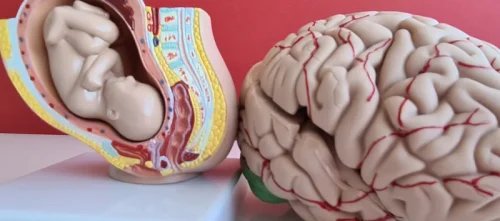
It responds to alcohol by producing antibodies known as immunoglobulin E (IgE). If you have a true alcohol allergy, even small amounts of alcohol can cause symptoms. Alcohol intolerance demands a nuanced understanding of its symptoms, causes, and management strategies. By fostering awareness and advocating for responsible drinking habits, individuals can navigate this condition with informed choices, ensuring their well-being in social settings involving alcohol. Understanding these risk factors can help individuals be more mindful of their alcohol consumption and attentive to any adverse reactions they may experience.

When to see a doctor
- There is no cure or treatment for alcohol intolerance unless it is due to medication use or a medical condition.
- You can also consider low-sulfite or organic wines, which are often better tolerated by those sensitive to sulfites, common preservatives found in many wines.
- You may not need to see a doctor if you have a mild intolerance to alcohol or something else in alcoholic beverages.
- This article looks at the links between alcohol and sickness and provides an overview of alcohol intolerance, including the signs, when to consult a doctor, and causes.
- Sulfites interact with stomach acid to release an irritant gas called sulfur dioxide, which can cause airway irritation in susceptible individuals.
- The efficiency of the ADH and ALDH2 enzymes varies among individuals, affecting how quickly and effectively they metabolize alcohol.
Rarely, severe pain after drinking alcohol is a sign of a more serious disorder, such as Hodgkin’s lymphoma. Although not a true allergy, in some cases, what seems to be alcohol intolerance might be your reaction to something in an alcoholic beverage — such as chemicals, grains or preservatives. Certain medical and health conditions (like those mentioned in the above section) can also make alcohol more difficult to tolerate. Aldehyde dehydrogenase (ALDH2) is an enzyme that your body uses to digest alcohol. It turns alcohol into acetic acid, a main component of vinegar, in your liver. A well-balanced diet can play a crucial role in managing intolerance in alcohol.
Grain-Based Ingredients

For a minor reaction, over-the-counter or prescription antihistamines might help reduce symptoms, such as itching or hives. Conditions like liver disease can contribute to alcohol intolerance due to the liver’s role in alcohol metabolism. A compromised liver struggles to process alcohol efficiently, leading to adverse reactions after consumption. Moreover, recent studies are shedding light on histamine and sulfite sensitivities, which often complicate the picture of alcohol intolerance. Research highlights how these compounds, commonly found in various alcoholic beverages, can trigger significant reactions in sensitive individuals. As scientists continue to explore these pathways, the possibility of developing interventions or lifestyle modifications to better https://ecosoberhouse.com/ manage these sensitivities becomes more attainable.

Difference from alcohol allergy
Someone who has alcohol Halfway house intolerance is more likely to have a hangover, and hangovers that do occur will be more severe than they would have been otherwise. When doctors diagnose alcohol intolerance, they typically use the immediate symptoms it causes. There are, however, other symptoms that may occur as delayed symptoms of alcohol intolerance. Unlike the immediate symptoms, these symptoms may or may not happen when alcohol is used. Alcohol intolerance can cause many symptoms and may differ between people. While there is some variation, most of these symptoms will be similar for everyone.
Navigating Daily Life with Alcohol Intolerance
No drug will help you avoid the symptoms of alcohol intolerance or lessen your cancer risk. By employing these strategies, individuals with alcohol intolerance can maintain an active social life while managing their condition. It’s important to remember that while alcohol plays a significant role in many cultures, personal health and well-being should always take precedence. Integrated care models that include collaboration among various health professionals are recommended for comprehensive management of alcohol-related health issues. These models address both the immediate symptoms of intolerance and the broader health implications of alcohol consumption. Individuals with alcohol intolerance can experience a range of discomforting symptoms after consuming alcohol.
- As a person ages, certain health conditions or medications may mean they have different reactions to alcohol than they previously did.
- By taking this simple step, you’re setting yourself up for a healthier drinking experience overall.
- Alcohol intolerance can cause immediate, uncomfortable reactions after you drink alcohol.
- This guide is here to help clear up the confusion about alcohol intolerance.
- People may be unable to drink alcohol without feeling sick as a result of a hangover, lack of sleep or food, or alcohol intolerance.
- Managing alcohol intolerance involves making specific lifestyle changes to avoid triggering symptoms.
- Others might have issues with the sulfites or histamines, as mentioned earlier.
- For those determined to enjoy alcohol, moderation and cautious selection of drinks to avoid specific triggers can mitigate symptoms.
- While there is no way to treat this condition, your healthcare provider can talk with you about ways to reduce the negative effects of alcohol intolerance.
Plus, it gives you a little more time to enjoy that social atmosphere without feeling overwhelmed! When dealing with alcohol intolerance, one simple rule to remember is that less really is more. Since alcohol intolerance happens because your body struggles to process alcohol, sipping slowly and spacing out your drinks can help ease those uncomfortable symptoms. Understanding the difference between alcohol intolerance and an alcohol allergy is really important for figuring out how to manage alcohol intolerance each condition. While both can make enjoying certain drinks a challenge, they stem from different causes and come with different symptoms. If a person develops a mild intolerance to alcohol or an ingredient in beverages, they may be able to manage it themselves simply by avoiding or limiting alcohol or certain drinks.

Management and Treatment
- The most common cause of alcohol intolerance is an aldehyde dehydrogenase (ALDH2) deficiency.
- If you have this variant, it causes your body to produce less active ALDH2.
- Alcohol intolerance is caused by a genetic condition in which the body can’t break down alcohol efficiently.
For instance, some people may react poorly to certain grains like barley or wheat, which are used in many beers and spirits. Others might have issues with the sulfites or histamines, as mentioned earlier. A food intolerance test can shed light on what might be causing those discomforting symptoms. Many people who develop alcohol intolerance simply enjoy the occasional drink, though some may have an alcohol dependence and become especially distressed at the onset of these symptoms.
